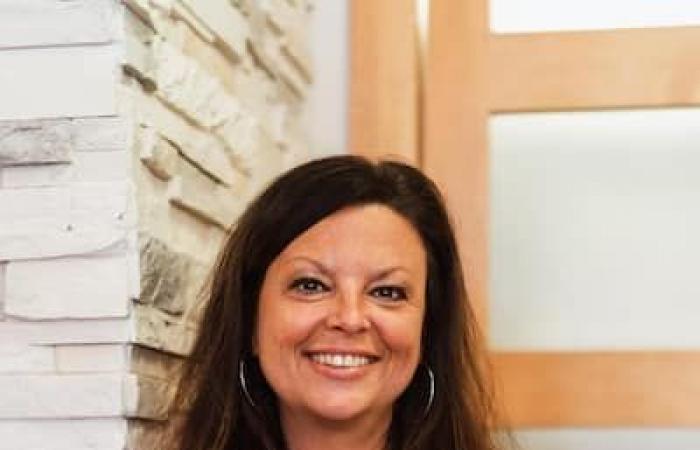No, it’s not the Wild West. However, be aware that these companies or individuals, who are dying to acquire your house, without intermediary or delay, and often accompanied by promises of payment entirely in cash, escape any form of supervision or regulation.
The Consumer Protection Office (OPC), the Financial Markets Authority (AMF) and even the Self-Regulation of Real Estate Brokerage of Quebec (OACIQ) have all confirmed to us that this activity is not under their jurisdiction. .
“Does this mean that these individuals or companies are all bandits? Of course not. But are there any cowboys in the lot? Very certainly,” says lawyer Luc Audet without any hesitation, who knows this area of activity like the back of his hand.
The law of the market
A few weeks ago, the start of proceedings (preliminary investigation) at the Montreal courthouse, against Mark Blumenthal and Constantin Niphakis, two individuals linked to the company with the evocative name of “I buy CA$H houses”, was brought the spotlight to this field of activity.
Mark Blumenthal is accused of fraud. He is seen here at his preliminary hearing, Monday October 21, 2024, at the Montreal courthouse.
Photo Michaël Nguyen
An activity, as old as time, which basically consists of buying a property at a good price to resell it for more, more or less quickly, as soon as a renovation or makeover operation is completed. We then talk about flipping.
Blumenthal is accused of having caused two victims while Niphakis is said to have caused nine. Until a judge assesses whether the evidence is sufficient to bring the accused to trial, a publication ban prevents us from revealing the ploy used to defraud their victims.
The Professional Association of Real Estate Brokers of Quebec (APCIQ) is hardly surprised that this poorly monitored sector gives rise to this type of slippage. As is often the case, summarizes Me Audet, in the absence of clear supervision, “it is the law of the market which prevails”.
Luc Audet, lawyer
Courtesy: Luc Audet
“The law of the market is not always bad in itself,” he adds. In general, no one will hold a knife to your throat to make you agree to sell your house for cash. However, in the absence of additional supervision, no law really protects the often vulnerable people who find themselves in the sights of these individuals.
There is no coincidence
You should know that it is not by chance – most often – that a traveling buyer (an entrepreneur or real estate investor) is interested in your house, rather than that of the neighbor.
Its interest usually finds its source in the reception of real estate and financial data sold by real estate data extraction companies, such as MonProspecteur.com, from Quebec, or JLR, a property of the American credit agency Equifax.
These firms report daily to their subscribers of all the notices of exercise and sale under judicial supervision – the “60 day notices” in the jargon -, sent each day to owners in default of payment, whether either from their banks or their municipality.

Nathalie Bégin, real estate broker Taken from Facebook.
Taken from Facebook.
“People don’t know about this and panic most of the time,” laments real estate broker Nathalie Bégin. From one day or the next, they know they are at risk of losing their home…”
“And as if by magic, at the same moment,” she continues, “a buyer knocks on the door with a ready-made solution: buy their house quickly with cold hard cash. Obviously, invariably, at a price of $100,000 to $150,000, lower than the market price.”
Others, especially where cities prohibit door-to-door solicitation, approach landlords in writing. This is how the owner of a condo in downtown Montreal was able to receive no less than fifty letters from unsolicited buyers in the week following receipt of his first “60 day notice”.
A new reality well understood by the founding president of MonProspecteur, who denies being able to control what his subscribers do with the public information he disseminates.
-30-
XXX
Titre: Are we interested in your house? Be careful, be careful!
Martin Jolicoeur
All the experts we spoke to recommend the greatest caution to those who, like you perhaps, receive or will one day receive a visit from a traveling buyer, who has suddenly “fallen in love” with your home at the turn of the street. a “visit to the neighborhood”.
Nathalie Bégin, real estate broker and president of the brokerage practices committee at the Professional Association of Real Estate Brokers of Quebec (APCIQ), deplores that the legislator is not doing more to plug “this breach” which allows any investor or construction entrepreneur to engage in real estate sales and resale.
Without supervision and professional order in place, it is the public who finds itself at risk and without recourse against reprehensible practices, she believes.
For owners who receive a visit from such a professional for such a quick purchase, she advises them to take all necessary precautions before signing anything that might not benefit them.
To put pressure on, we often try to make them believe that it is an “offer that will not pass twice”. This is not the case, she says, adding that their offer is very often well below the market.
And the cash?
If you are offered to buy your house in cash, with a suitcase full of bank notes, caution is probably even more important, says Louis Beauchamp, spokesperson for the Self-Regulatory Organization for Real Estate Brokerage. Quebec (OACIQ).

Louis Beauchamp, vice-president of communications of the OACIQ Courtoisie, OACIQ
Courtesy, OACIQ
The fact that a transaction is made in cash does not in any way exempt a seller from signing a sales contract before a notary, who is required, in the same way as real estate brokers, to verify the origin of the funds received.
On this, the Chambre des notaires du Québec is however more than discreet, having chosen not to respond to any of our numerous interview requests on the rights and obligations in this area of the members of this profession.
In any case, advise both the OACIQ and the Financial Markets Authority (AMF), in case of doubt a seller should never hesitate to call the information lines of one or the other of these two organizations .
Supplementary table to the (previous) text on caution:
What to do if someone rings your doorbell?
- Take a step back, don’t sign anything. Do not make any agreement, verbal or written, at first.
- Do your research; find out about the company or person approaching you.
- Ask their representative to show you their itinerant commerce permit from the Consumer Protection Office (OPC). Holding such a permit is mandatory.
- Check that the company is duly registered in the Quebec Business Register (accessible online for free) and that the information appearing there (address, shareholders, directors, etc.) corresponds to what you have been told .
- Check the company’s reputation. Ask for references and to speak to past clients.
- Look for traces of history, complaints, lawsuits, on the web, in past newspaper reports, and with the OPC.
- If in doubt, talk to a trusted friend and take the time to consult an independent real estate appraiser or broker to verify that the offer received is in line with the market.
- Do you feel pressured and pressed for time? This is a good reason to ask even more questions.
-30-
XXXXXX
Small box 1
Titre : 9000
This is the number of notices of exercise, abandonment or sale under judicial supervision delivered each year in Quebec by financial institutions.
XXXXXX
Small box 2:
Title: Illegal brokerage
Despite the recent explosion in notices of exercise, abandonment and sales under judicial supervision, the OACIQ has not noticed an increase in public denunciations of illegal brokerage.
In 2023, the Self-Regulation of Real Estate Brokerage of Quebec (OACIQ) opened a total of 66 investigations into the illegal practice of real estate brokerage.
This is approximately the same number as in previous years. The organization receives, year after year, around 3,000 complaints from the public, explains its spokesperson, Louis Beauchamp.
Of these, between 60 and 70 complaints concern specific aspects of the Real Estate Brokerage Act which may affect, in certain circumstances, the practices of these professionals in the purchase and/or rapid resale of real estate.
In 2022, the OACIQ opened 67 investigations for illegal brokerage. Of the lot, seven led to tickets being issued.
-30-
XXXXXX
Small box 3:
Title: Buying cash: marketing 101
On the internet, on the community center bulletin board, or on leaflets left on your doorstep, they almost always mention it.
“We will buy your house quickly, without an intermediary, and above all in cash!” A final argument – that of cash – which is of course not without interest for several owners, particularly in a period of explosion of notices of exercise, abandonments and sales under judicial supervision.
But in reality, this type of transaction is extremely rare, confides trainer Ghislain Larochelle, president of Immofacile.ca, who has already carried out dozens of real estate transactions for his own account.
“The vast majority of the time, it’s marketing,” explains the man who also writes a regular column in The Journal.
“They talk about a cash transaction to suggest that the transaction will be done quickly, without hassle or the worry that might constitute for some the very idea that the buyer could be refused a mortgage loan.”
“No, normally no one will give you $700,000 cash in an envelope. And if so, ask yourself questions!”-30-
XXXXXXXXX









